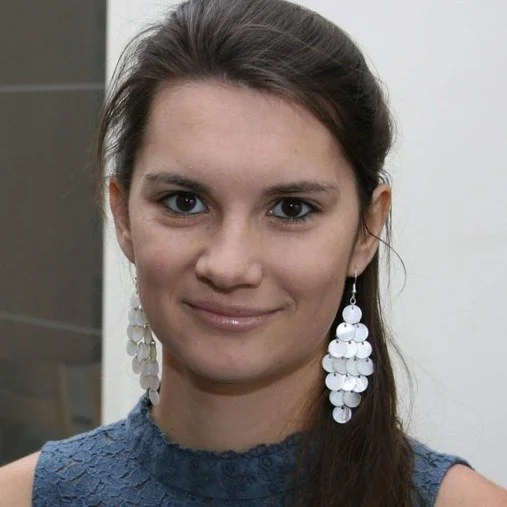
Contemporary Issues
in Animal Rights Law
Online Live Course
Explore the fascinating and evolving field of Animal Rights Law with ICARE’s ‘Contemporary Issues in Animal Rights Law’ (CIARL) online course. This unique online programme blends insightful academic theory with practical advocacy and litigation skills, equipping participants from diverse backgrounds to become effective changemakers in one of the most dynamic areas of legal study.
Registration for the 2nd edition of the CIARL live course is now closed.
You can enrol in our on-demand CIARL course to learn at your own pace.
About the CIARL Course
-
Modalities
Live classes in English, Saturdays from 25 October 2025 to 20 December 2025, from 4 pm to 6 pm (CET). All materials and assignments will be available on Google Classroom. Live lectures will take place on Zoom.
Participants will have the opportunity to engage in forum discussions. -
Coursework
Requires 7 hours per week (including 2 hours of live lectures, readings, and assignments), amounting to a total of 80 hours for the total of the course from late October to mid-January (including weekly modules, the online speed moot court, and the evaluations).
-
Skills
Participants will develop analytical, ethical and legal reasoning, persuasive argumentation, oral advocacy skills, and oral presentation techniques. They will also gain research proficiency, strategic thinking, and practical experience crafting legal strategies. They will receive individualised feedback on their practical assignments, designed to apply their knowledge and hone an array of real-life advocacy skills.
-
Assignments
Assignments include short weekly quizzes, case analyses, policy proposals, policy briefs, policy statements, SWOT analyses, concept mapping, debates, essays, role-plays, public messaging, and an online speed moot court on aquatic animal rights.
-
Evaluation
Oral research presentations will take place on 17-18 January 2026, evaluated by a jury consisting of leading experts in Animal Rights Law. Outstanding students may be invited to submit their research as a student paper in the Journal of Animal Rights Law.
-
Certificate
Participants must attend at least 75% of the live classes, complete the weekly quizzes and evaluation, and at least 50% of the weekly assignments to demonstrate their understanding and mastery of the course content.

Course Structure
The course is structured over eight modules, each including a live lecture taught by a different Animal Rights Law and Ethics leading scholar, blending academic theory with practical skills.
Following a break for independent research, participants will return for an online speed moot court on Aquatic Animal Rights and ‘Evaluation Week’ to present their short research projects.
Week 1: 25 October 2025
Introduction to Animal Rights Law
Dr Silvina Pezzetta will introduce the key concepts and definitions central to Animal Rights Law, laying the foundation for understanding the relationship between animals, law, and society. She will clarify the distinctions between ‘moral rights’ and ‘legal rights’ and ‘animal rights’ and ‘animal welfare,’ discuss the limitations of current legal protections, and explore the legal implications of animal sentience and animal dignity. Participants will gain insights into the challenges faced by Animal Rights Law today.
Week 2: 1 November 2025
Transnational Developments in Animal Rights Law
Dr Elien Verniers will explore the historical foundations, current transnational developments, and future potential of international Animal Rights Law. She will guide participants through the evolution of global and regional legal frameworks, tracing how international instruments, regional legislation, and institutional mechanisms have shaped the status and protection of non-human animals. She will also introduce emerging doctrines, like ‘Animal Rights Constitutionalism,’ highlighting their potential implications for the future of animal welfare and animal rights.
Week 3: 8 November 2025
Philosophical Foundations of Animal Rights
Professor Lori Gruen will explore the philosophical foundations of animal rights, examining key moral theories that shape the discourse on animals' legal status and treatment. She will guide participants through classical and contemporary philosophical perspectives, analysing their influence on Animal Rights Law and policy, and clarify the distinction between ethics and law. Participants will engage with critiques of traditional theories and explore alternative approaches to understanding animal rights, in particular, care ethics.
Week 4: 15 November 2025
Legal Theory of Animal Rights
Professor Visa Kurki will delve into the theoretical foundations of animal rights within the legal sphere. He will introduce key legal theories and explore the capacity of animals to hold legal rights. Participants will examine the contentious issue of legal personhood for animals, questioning whether animals need this status to hold rights. Kurki will unpack with students his notorious “Bundle Theory of Legal Personhood”, and address his critique of the orthodox theory. He will guide reflections on how these theories and debates influence the future development of Animal Rights Law.
Week 5: 20 December 2025*
Comparative Animal Rights Jurisprudence
Dr Macarena Montes Franceschini will guide participants through landmark animal rights cases from across the globe, including the United States, Latin America, Asia, and Europe. She will examine six categories of jurisprudence—habeas corpus petitions, constitutional remedies, family law, criminal law, Rights of Nature, and symbolic cases—to illustrate how legal systems have addressed claims for animal rights and legal personhood. Participants will analyse the strategic litigation techniques and legal arguments employed by animal rights NGOs, and examine the judicial reasoning used to grant or deny rights to animals. The session offers a nuanced view of how courts, advocacy groups, and evolving legal doctrines shape the trajectory of Animal Rights Law.
Week 6: 29 November 2025
Enforcing Animal Rights Law
Jessica Chapman will explore how animal rights are enforced in practice and the obstacles that stand in the way. Participants will examine judicial, administrative, and cross-border mechanisms; challenges such as legal standing, institutional resistance, and political context; and lessons from comparative experiences. The module also highlights the role of legal strategies, courts, and civil society, inviting reflection on multispecies justice and the ‘enforcement problem’ in animal rights law. Particular attention will be given to innovative approaches, including restorative and transformative justice, as well as Indigenous perspectives, and how these can contribute to advancing multispecies justice.
Week 7: 6 December 2025
Political Representation of Animals
Professor Will Kymlicka will explore the intersection of animal rights with legal advocacy and political representation. He will examine the challenges and opportunities in advocating for animal rights within political systems, as well as political rights for animals. Participants will delve into political theories, models of representation for animals, and the distinction between legal and political standing. The session will address complex questions around the political rights of animals, their role in policy-making, and the institutional frameworks best suited to protect their interests.
Week 8: 13 December 2025
Animal Rights as a Social Justice Movement
Professor Iselin Gambert will explore animal rights within the broader social justice landscape, tracing its historical development and intersections with movements like women's, civil, and LGBTQIA+ rights. Participants will examine the ethical, legal, and social dimensions of animal rights activism, including challenges posed by laws like 'ag-gag' and risks taken by activists, including criminal prosecution. They will also delve into concepts such as the 'right to rescue' and 'voluntary prosecution,' while discussing strategic alliances.
Speed Moot Court on Aquatic Animal Rights
10 January 2026
Ms Amy P. Wilson and Ms Hira Jaleel will facilitate the online Speed Moot Court on Aquatic Animal Rights, providing participants with a unique opportunity to apply their knowledge, particularly in Animal Rights Jurisprudence. Acting as both Trainers and Judges, they will guide participants through this hands-on session focused on the often-overlooked field of Aquatic Animal Rights, offering practical experience in this critical and emerging area of Animal Rights Law.
Evaluation Week: 17-18 January 2026
Participants will conduct short research on an Animal Rights Law topic of their choice and prepare a concise oral presentation. The evaluation aims to synthesise the course’s learning and encourage individual exploration of a specific issue of Animal Rights Law, while gaining research proficiency and receiving personalised feedback from leading scholars. The challenge is to present research findings within a 10-minute timeframe, demonstrating clarity, critical thinking, and practical communication skills.
Participants will receive a Guide for Research Presentation and a Guide for Research Publication, and may be invited to submit their research as a student paper to the Journal of Animal Rights Law.
An esteemed panel of distinguished scholars will provide constructive feedback and evaluate the presentations during Evaluation Week.
Bonus: Pathways in Global Animal Rights Law: 22 November 2025
This interactive session will bring together experts from different professional and regional backgrounds to share their experiences in shaping animal rights law. Through short presentations and small-group discussions, students will have the opportunity to engage directly with practitioners, academics, and advocates working across litigation, policy, theory, and grassroots advocacy. The session will highlight diverse approaches to advancing animal rights worldwide and offer students insight into possible career and advocacy pathways in the field.
Registration for the 2nd CIARL live course is closed.
Join the waitlist.
To join the waitlist for the next CIARL live course, please fill out this form and indicate which course you would like to join. We will let you know when registration opens so you can be first to secure your spot in the course.
The dates for the next live edition(s) of the CIARL live course will be determined shortly.
Hear directly from our alums & lecturers:
The CIARL course is rated 4.5/5, and 4.86/5 of our students recommend it to others!
With the kind support of











